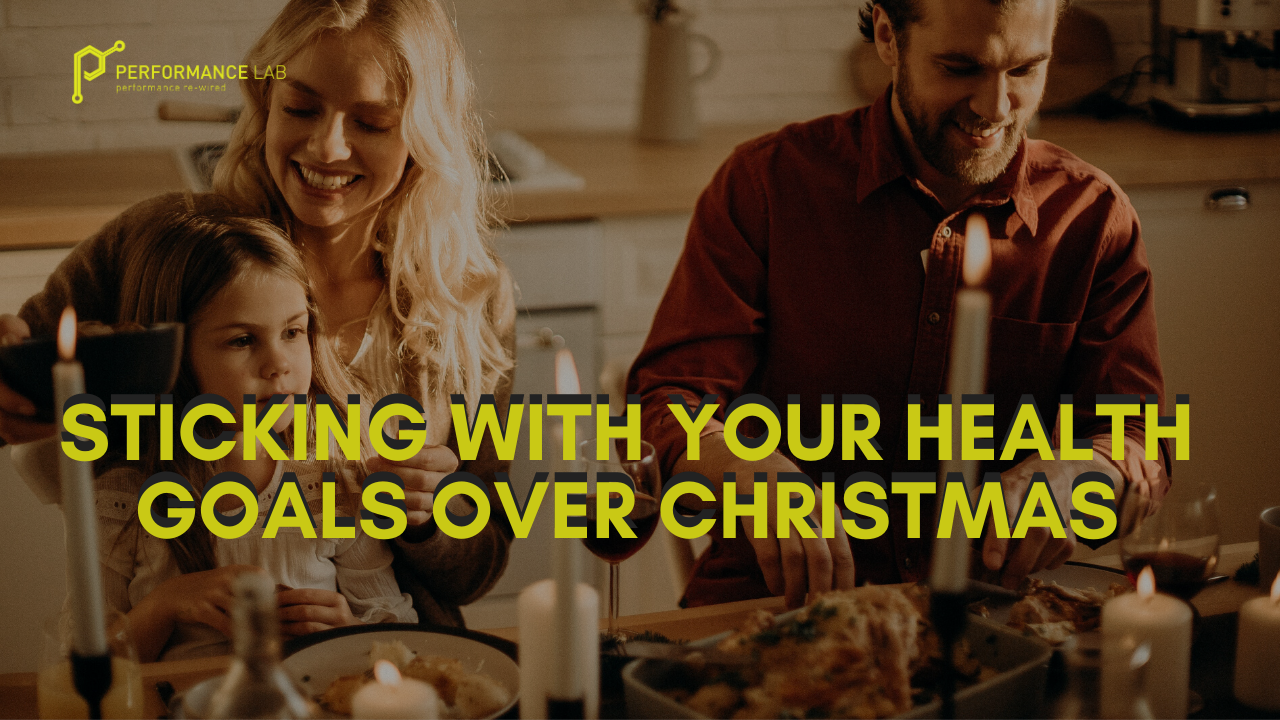Sticking with Your health Goals over Christmas
“Research shows that the average person will put on 1-1.5kg over the Christmas Holidays. That may not seem like much, but add the fact that this weight is generally all body fat, and that the vast majority of people don’t fully lose that weight over the following 12 months, and it starts to look a little bleak.”
Christmas Holidays are coming. For a lot of people, that is going to mean a few things: time off, festive cheer, food, drinking, afternoon sleeps and family. But it also might mean that some of your goals get off track. While the break is a great time for our mental and emotional wellness, it also means that a physical health might take a beating as we indulge in food, drink and lack of work responsibility.
So, let’s look at this problem and see what we can do over the holiday season to help.
Health Goals
You’ve worked hard all year to be healthier, maybe you lost a little bit of weight, and your body fat percentage is down. You feel pretty good. You would be amazed (or maybe not) how easy it is to undo all your hard work.
Research shows that the average person will put on 1-1.5kg over the Christmas Holidays. That may not seem like much, but add the fact that this weight is generally all body fat, and that the vast majority of people don’t fully lose that weight over the following 12 months, and it starts to look a little bleak.
So, what can you do? It’s not all about being a killjoy and complete self-discipline, but just about establishing the habits that might help you keep the weight gain to a minimum. Firstly, be realistic. I don’t know anyone who actually loses weight over the Christmas period, so set a goal to just maintain or maybe put on less than a kilogram, or something similar.
Secondly, think about the habits that might help you keep the weight off. These might be your bare minimum habits that you will keep you healthy. For example, you might have 4 completely alcohol-free days a week over the holidays, or give yourself a limit of standard drinks that you can have. You might decide that you are only going to eat calorie dense foods for one meal a day instead of all three, or that you are going to skip the afternoon cheese and dips every second day. Small things like this help us to have some ‘rules’ to follow, as well as having regular rewards that can keep us on track for another day. If you know you’re going to have a special dinner, it’s easier to eat healthy at lunchtime.
These habits also apply to exercise. Forget your usual regime and pare it back to what will get you through the next few weeks. Maybe that’s just 3-4 days a week instead of 6. Or maybe you sub in some family activity like going for a walk in the afternoon a few days a week. Whatever it is be clear about what the specific behaviour is so that it gives you the best chance of following through. Just saying “do some exercise” is not going to help you at all. You need to know what you are going to do, when (or how often in the week), where and with whom.
Realistic expectations coupled with clear behaviours and habits that can help you maintain your weight are the best ways to avoid feeling like garbage at the end of the Christmas Holidays. Come up with your simple strategies, write them down so that you can monitor them, then let yourself indulge on your days off. There’s nothing better than indulging in some guilt-free Christmas cheer.
** Tony Wilson is a Workplace Performance Expert focussed on helping leaders build the environment for high performance. His insights into performance science and it's application in the workplace will make you re-think the way that you approach leadership, culture change, high performance and productivity. Tony has an MBA and a BSc majoring in physiology and combines the two for a different perspective. He is also the author of Jack and the Team that Couldn't See and delivers workshops and keynote presentations around the globe.
